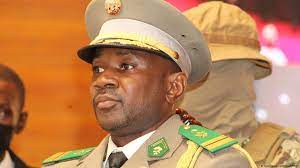The president of Mali’s constitutional court has made waves with respect to the electoral timetable.
On the sidelines of the international symposium on the electoral process recently held in Bamako, Amadou Ousmane Toure, President of the Constitutional Council, said that nothing was in place to organize elections.
“If it is for tomorrow we are not ready and even in a few months we will not be ready,” he said, adding that “if the elections are held, you will not have the results, we will keep them”.
He also asked for “help to have a budget. We have nothing to go to the elections.”
Under pressure from the Economic Community of West African States (ECOWAS), which is demanding a return to constitutional order and compliance with the transition timetable, Mali must hold a constitutional referendum on March 19, 2023.
A first ballot will be followed by the first round of presidential elections in February 2024.
The military in power after the August 18 coup against the late President Ibrahim Boubacar Keita must deal with a jihadist insurgency that has been plaguing the country since 2013.
The worsening of the security situation is brandished by the power of Bamako to explain the delays in compliance with the electoral timetable.
But for Amadou Ousmane Tour”, installed at the head of the highest court of the country on August 10, 2020, the causes are multiform.
“If you want to march tomorrow to say to give the means to the Court, you must march and I would take the lead.”
For him, it is not for the Court to decide the organization of an election, but rather for politicians.
These comments reinforce the position of some skeptics who doubt that the electoral calendar will be respected.
In addition to the question of resources, some also mention the delay in the installation of the branches of the Independent Electoral Management Authority (AIGE) that are supposed to manage the entire electoral process.
In addition, the convening of the Electoral College for the March 19 referendum is still not done, although it was scheduled for February 17, 2023.
However, according to the electoral law, the installation of the Electoral College must take place six months before the elections.
In addition, the security situation is still not under control, despite the announcement by the president of the transition on January 20, on the occasion of the army’s day, of the launch of a new operation to secure the electoral process, called “Tile Koura.”
For all these reasons, some political voices are asking the transition authorities to avoid wasting time and rather focus solely on the organization of the 2024 presidential election.
The rebuilding of Mali must be their main focus in order to move towards elections under the best possible conditions.
But this approach could well offend ECOWAS, as it would mean a delay in respecting the electoral calendar.
It is in this context that the ECOWAS mediator for Mali, former Nigerian President Goodluck Jonathan, arrived in Bamako on Monday, February 20 for a 48-hour visit.
The visit is intended to assess the progress made in restoring constitutional order.
It also comes on the heels of an extraordinary summit of the regional organisation in Addis Ababa, the Ethiopian capital, where it was decided to maintain sanctions against the Malian authorities until constitutional order is restored.
MD/cgd/fss/as/APA


